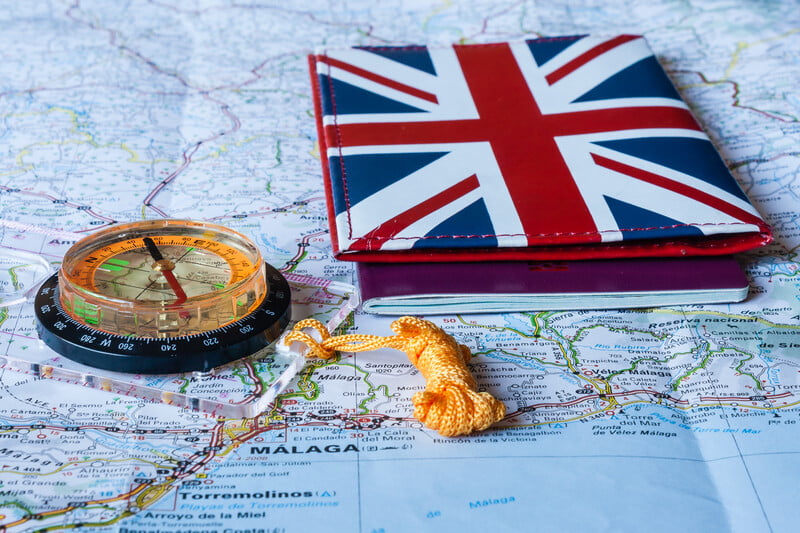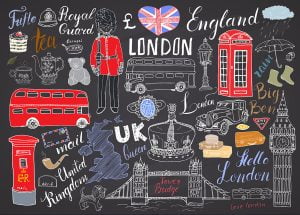British Citizenship Naturalisation: Your Essential Guide
Embarking on the journey to British Citizenship Naturalisation can be a complex and rewarding process for those who wish to call the United Kingdom their permanent home. As an expert in this field, We are here to provide the guidance needed for a successful naturalisation application journey.
We will explore various aspects of naturalisation applications, from completing Form AN and gathering supporting documents to understanding eligibility requirements such as residency and language proficiency. Additionally, we’ll discuss specific application procedures for those applying based on marriage or civil partnership.

Furthermore, our discussion will cover designated referees’ roles in the British Citizenship Naturalisation process and how they contribute to a successful outcome. Lastly, we’ll delve into biometric information submission and what to expect during your UKVI application review.
Table of Contents:
- The Naturalisation Application Process
- Proving Your Eligibility
- Applying for British Citizenship Based on Marriage or Civil Partnership
- Designated Referees Requirements
- Biometric Information Submission
- Application Review by UKVI
- Conclusion
The Naturalisation Application Process
Applying for British citizenship through naturalisation is a big deal. Filling out the lengthy 30-page form, submitting relevant paperwork, and paying a substantial sum of £1,330 are all components of applying for a British citizenship via naturalisation. But don’t worry; we’ve covered you with all the details you need.
Completing Form AN for Adult Naturalisation
Form AN is a doozy. It asks for everything from your name and address to your employment history and travel dates. Please read the guidance before completing it and double-check all entries before submitting.
Gathering Required Supporting Documents
- Evidence of Identity: You must provide a valid passport or national identity card with your photo and signature.
- Evidence of Residency: Documents like utility bills or bank statements can prove your continuous residence in the UK during the qualifying period.
- Evidence of Language Proficiency: Include proof that you meet English language requirements.
- Criminal Record Check: You may need to obtain a criminal record certificate if you’ve lived outside the UK within five years before your application date.
 Paying the Non-Refundable Application Fee
Paying the Non-Refundable Application Fee
Get ready to fork over £1,330 for the application fee. You can pay online through the UK Visas and Immigration (UKVI) website or at a UKVCAS center during your biometric appointment.
Once you’ve filled out Form AN, acquired the necessary documents, and paid the charge, your application is ready to be submitted. Keep in mind that processing times vary, so be patient.
Proving Your Eligibility
Want to become a British citizen? You’ll need to prove your eligibility by providing comprehensive information about yourself. This includes details on absences from the UK and relevant documents. Don’t skimp on the details – incomplete information can delay or refuse your application.
Demonstrating residency requirements through documentation
To meet the residency requirements, you must show that you’ve lived in the UK for at least five years (or three years if married to a British citizen). This can be done by providing official documents such as utility bills, bank statements, and payslips dated within these timeframes. Don’t forget – you can’t exceed 450 days of absence from the UK during this period.
Providing evidence of language proficiency if necessary
If English isn’t your native language, you’ll need to demonstrate proficiency by taking an approved SELT or presenting a UK NARIC-recognized degree taught in English; be sure to include the relevant test results or certificates with your application. Pass an approved English Language Test (SELT) or hold a degree taught in English recognized by UK NARIC. Make sure to include copies of test results or certificates with your application.
Showcasing good character by disclosing criminal history or civil matters
The “good character” requirement means no serious criminal convictions or involvement in activities contrary to the public interest. Disclose all relevant information regarding past legal issues when applying for citizenship – even minor offenses like speeding tickets should be included. The Home Office provides detailed guidance on assessing good character, which can be found here.
Before submitting, accurately and thoroughly furnish all documents to optimise the probability of a successful result. Double-check all documentation before submitting it to avoid any unnecessary delays or refusals. Good luck.
Applying for British Citizenship Based on Marriage or Civil Partnership
Are you in love with a British citizen and want to become one yourself? If so, you can apply for citizenship based on your marriage or civil partnership. However, you must provide evidence that your relationship is genuine and legal. Here’s what you need to know:
Submit Your Marriage Certificate or Civil Partnership Registration Document
You must submit an original marriage certificate or civil partnership registration document for your naturalisation application. These documents prove that your union is legally recognised in the UK. If the original is not available, you may obtain a certified translation. Check out the General Register Office (GRO) for replacement copies.
Show That You’ve Been Living Together
To prove your three-year continuous living together to marry a British citizen, provide at least six pieces of joint correspondence over that period. To do this, provide at least six correspondence addressed jointly in both names at the same address over this time frame. These can be:
- Mortgage statements or rental agreements
- Council tax bills
- Utility bills (gas, electricity, water)
- Broadband or landline telephone contracts
- Joint insurance policies (home, car, life)
- Bank account statements, savings accounts, pensions, or investments
Include documents from various sources and spread across the entire qualifying period to establish a consistent pattern of cohabitation. If you can’t provide joint documentation, consider submitting alternative evidence, such as a letter from your landlord or statements from friends or family who can vouch for your living arrangements.
The Idea: You must provide evidence of your genuine and legal relationship to apply for British citizenship based on marriage or civil partnership. This includes submitting an original marriage certificate or civil partnership registration document, proving that you’ve been living together continuously for at least three years, and providing joint documentation such as bills and contracts to establish a consistent pattern of cohabitation. Doing so, alongside Form AN and other required materials, ‘ll increase your chances of a successful naturalisation application.
Designated Referees Requirements
When applying for British citizenship, you need two designated referees to sign your Form AN and confirm that all information provided is accurate. These referees must meet specific criteria set forth by UKVI and know you well enough.
Criteria for Choosing Appropriate Referees
- Both referees must be over 18 years old and not related to you or each other.
- One referee should be a UK-born citizen or have obtained citizenship through naturalisation and hold a valid British passport.
- The second referee must have professional standing, such as being registered with an accredited body like the General Medical Council, Royal Institute of Chartered Surveyors, or Law Society.
- Your chosen referees should have known you personally for at least three years before submitting your application.
 Responsibilities of Referees During the Naturalisation Process
Responsibilities of Referees During the Naturalisation Process
Designated referees play several crucial roles throughout your journey toward becoming a British citizen:
- Certifying photographs: Referees need to certify one photo of themselves by writing their name and address on the back along with “I certify this is a true likeness of [your full name].” They will then sign and date it.
- Completing Section 10 of Form AN: Referees must fill in their details, including full name, address, occupation, and date of birth. They should also provide information about their British citizenship or professional standing.
- Declaration: Both referees need to sign the declaration at the end of Form AN to confirm that they have known you for a minimum of three years and believe you meet all requirements for British citizenship.
Choosing appropriate referees is essential in your journey toward obtaining British citizenship. Realising the standards and obligations connected with this procedure can guarantee that your application has strong backing from those closest to you. For more information on the naturalisation requirements and citizenship applications, visit the UK Government website.
The Idea: To apply for British citizenship, you need two designated referees who meet specific criteria and know you well enough. One referee should be a UK-born citizen or have obtained citizenship through naturalisation, while the other must-have professional standing. Referees play several crucial roles throughout your journey towards becoming a British citizen, including certifying photographs and completing Section 10 of Form AN.
Biometric Information Submission
Most applicants must submit their biometric information, including fingerprints and facial photographs, to a UKVCAS center as part of the naturalization application process. This data is used to verify your identity and issue a Biometric Residence Permit (BRP) if your application is successful. Here’s what you need to know about scheduling an appointment and preparing for the biometric submission process.
Scheduling an Appointment at a UKVCAS Center
To schedule an appointment, visit the GOV.UK website. Choose a convenient date and time, as rescheduling may cause delays. Additional fees may apply for premium services or appointments outside standard working hours.
Preparing for the Biometric Submission Process
Arrive early for your appointment to complete the necessary paperwork and address concerns. Bring your passport or travel document, appointment confirmation, completed Form AN, and payment receipts (if applicable). During submission, staff will take digital copies of your index fingers and facial photograph. Follow any instructions provided by the staff, such as removing glasses or head coverings (unless worn for religious reasons) when taking the photo.
Once you’ve submitted your biometric information, UKVCAS will provide a receipt as proof of submission. Keep this receipt safe, as it may be required in future correspondence with UKVI regarding your application.
Providing biometric data is a fundamental part of the naturalization procedure. By scheduling an appointment at a UKVCAS center and preparing adequately for the submission process, you can ensure that this stage goes smoothly and brings you one step closer to becoming a British citizen.
Application Review by UKVI
Once you submit your naturalisation application, the United Kingdom Visas and Immigration (UKVI) will begin reviewing it. This is a crucial step in determining your eligibility for British citizenship. Let’s examine the review process and its duration.
Understanding the Review Process Duration
UKVI’s examination of your request may be influenced by multiple components, for example, the intricacy of your situation, present handling times, and any extra checks that could be needed. On average, most applicants can expect a decision within 3-6 months from submission. However, as each case is unique, there can be no definite timeline for a decision. To stay updated on processing times, visit the UKVI website.
Possible Outcomes of Your Application: Approval, Delay, or Refusal
Your naturalisation application could result in one of three possible outcomes:
- Approval: If all requirements are met, and no issues with your background check or documentation are provided.
- Delay: A delay occurs when UKVI requires more information before deciding on granting citizenship.
- Refusal: If you do not meet eligibility criteria or have an issue with supporting documents.
During the review process, UKVI will cross-reference submitted documents with other records such as HMRC data (taxes), verify visa status in the UK (including residence permits), and check for any criminal or civil matters that may disqualify you from citizenship. This process ensures that only eligible applicants are granted British citizenship.
If your application is delayed or refused, UKVI will provide a reason for the decision and inform you of any next steps to take. It’s essential to address these issues promptly and accurately if you wish to reapply or appeal the decision.
Overall, it’s vital to ensure that all information in your naturalisation application is accurate and complete before submission. Doing so can help minimize delays during the review process and increase your chances of being approved for British citizenship.
The Idea: After submitting your naturalisation application, the UK Visas and Immigration (UKVI) will review it to determine eligibility for British citizenship. This process can take 3-6 months, depending on various factors, such as the complexity of the case and the additional checks required. Possible outcomes include approval, delay, or refusal, with delays occurring when more information is needed before making a decision. It’s important to ensure all information provided in the application is accurate and complete to minimize delays during the review process and increase the chances of approval.
Conclusion
How to Become a British Citizen through Naturalisation
Becoming a British citizen through naturalization involves completing Form AN, gathering supporting documents, and paying the application fee.
To be eligible, you must meet residency requirements, demonstrate language proficiency (if necessary), and have good character by disclosing any criminal history or civil matters.
If you’re applying based on marriage or civil partnership, you must submit relevant documentation such as certificates and joint financial statements.
Designated referees play an important role in the process, and you’ll need to schedule an appointment at a UKVCAS centre to submit your biometric information.
After submitting your application, it will be reviewed by UKVI, with possible outcomes being approval, delay, or refusal.
Check out this website for more information on the UK citizenship test.

 Paying the Non-Refundable Application Fee
Paying the Non-Refundable Application Fee Responsibilities of Referees During the Naturalisation Process
Responsibilities of Referees During the Naturalisation Process